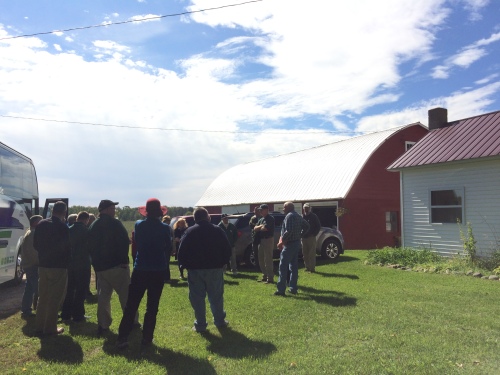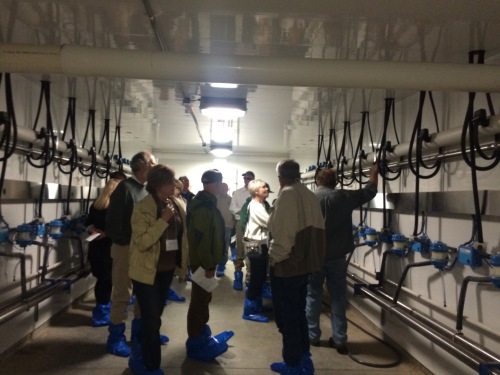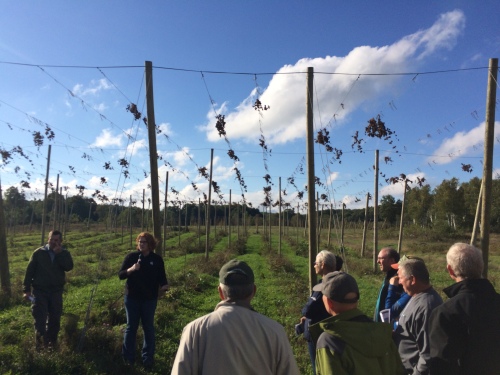The second annual Michigan State University (MSU) Agriculture Innovation Day that took place at the MSU Lake City Research Center welcomed 230 guests. This year, the theme was Focus on Forages and the Future. The educational field day delivered a cutting-edge, in-depth look at critical topics such as forages, livestock and the future to help farmers meet growing producer demands. People came from across the state, the Midwest and Canada.
Shari Spoelman, MSU Extension District 6 coordinator, helped shuttle people back and forth from their cars, giving her the opportunity to interact with visitors.
“I talked with folks from Ohio, Indiana, Ontario and southern Michigan,” Shari said. “Some wanted to just explore the research center property. Others said they wanted to go to all the sessions. Some had certain things they were especially interested in like soil health or double-cropping. One man arrived with his grandkids – they said they came for something fun to do in the area.”
Throughout the afternoon, farmers had the opportunity to participate in nine sessions focused on topics such as alfalfa genetics, silage, double-cropping, dairy cattle monitoring, soil health, baleage, beef operations management and land regeneration.
MSU senior Extension educator Marilyn Thelen shared that producers from across the state attended her session “Expand Your Land Use With Double-Cropping.”
“The session generated a lot of discussion on how cover crops could be incorporated into various systems for feed or simply for cover,” Marilyn said.
You can find session handouts on the Speakers page.
In the evening, participants attended a reception and were able to hear from President Lou Anna K. Simon and Dean Ron Hendrick and connect with other leaders in the College of Agriculture and Natural Resources.
“Attendees and staff got a chance to mingle with stakeholders and talk about emerging and trending topics in agriculture, including the grass-fed beef and sustainability research Dr. Jason Rowntree is involved with, and matters as important as how we talk about ‘climate change,’” Shari said.
MSU Agriculture Innovation Day rotates to various locations throughout the state to give farmers access to experts who can help them improve their businesses while maintaining environmentally sound practices on their farms. MSU hosted the first Ag Innovation Day on Aug. 24, 2016. The event is the vision brought about after Ag Expo was re-envisioned.
“Ag Innovation Day is the opportunity for farmers to get the most up-to-date information from MSU,” said John Mossner, farmer and MSU Extension and AgBioResearch State Council member. “It is focusing on sound research and science relating to the type of agriculture conducted at each research station. Having attended both events in the last two years, I am impressed with the effort that MSU Extension is doing to make it a meaningful day.”















